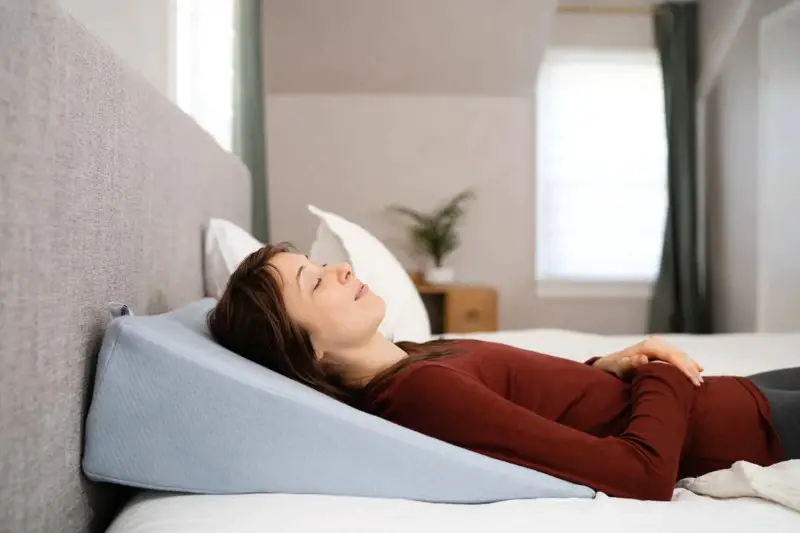Ever finding yourself waking up tired the next morning like you barely have enough quality sleep? You may suffer from sleep apnea, a condition that occurs when you stop breathing while sleeping. It basically happens when the soft muscle tissues in your throat and tongue temporarily relax, causing a brief collapse of your airway. That being said, here are the 8 home remedies you may try to relieve sleep apnea.
1) Change Your Sleep Position
Let’s start with something simple. Back sleepers who have sleep apnea tend to find their symptoms worsen due to their tongues falling back into the mouth. This, in turn, can cause airway blockages and affect your breathing. To counter that, try sleeping on your side since it may reduce the symptom and helps you breathe easily.
Not used to side sleeping? Try one of these two methods: You can place pillows behind you to keep you from rolling over. Or if you don’t mind going through all the trouble, the tennis ball trick might work. And that is, placing a tennis ball into a sock and tape/pin/sew to the back of your shirt. The tennis ball serves as a “reminder” not to lie on your back since it would make you uncomfortable if you do that. However, do keep in mind the tennis ball trick won’t work if you prefer to sleep shirtless.
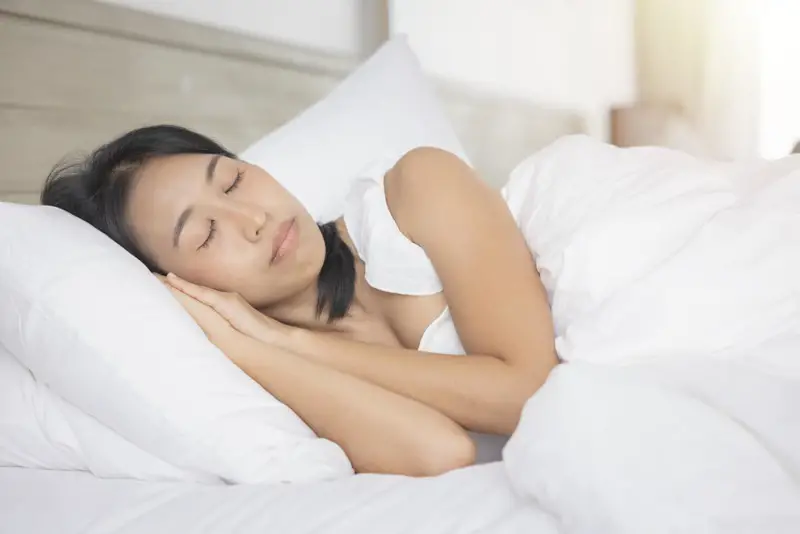
2) Consider Getting a Humidifier
Sure, Malaysia is a humid country so investing in a humidifier sounds like a bad idea. But if your room is constantly plagued with dry air, it can cause discomfort in your body and yes, breathing problems too. By using a humidifier, this device can add moisture back to the air. Not only does it help open your airways but also promotes better breathing and reduces nasal congestion.
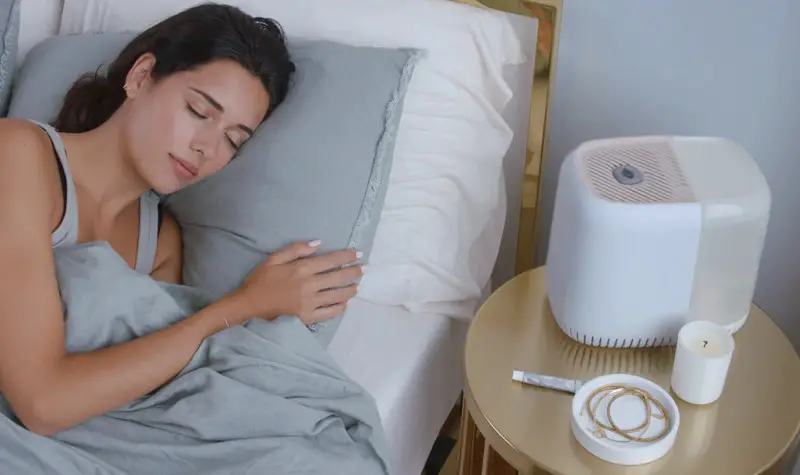
3) Try Certain Essential Oils
Some essential oils can help relieve your symptoms of sleep apnea. For instance, consider using lavender oil since it relaxes you with its mild sedative effect and it also reduces anxiety. Peppermint oil may work too due to its anti-inflammatory properties, which promote better breathing during sleep, especially if you have a sinus problem. Finally, if you are prone to nasal allergies, you may risk your airway getting congested. Eucalyptus oil may be the answer to your problem for minimising the congestion. To use essential oils, you can add a few drops to a diffuser or apply some on a towel. Then, slip the towel inside your pillowcase.

4) Cut Back On Alcohol and Smoking
Certain lifestyle changes may improve the symptoms of sleep apnea. If you regularly drink alcohol such as beer and hard liquor, consider reducing your consumption since it relaxes the throat muscles. This can cause excessive snoring and disrupt your breathing problem. As for smoking, it can increase swelling in your airways and even cause inflammation that triggers sleep apnea.

5) Healthy Weight Matters
People who have excess weight or suffer from an overweight problem are prone to sleep apnea. The thing is, extra fat in the upper part of your body can obstruct your airway, resulting in a sudden halt in breathing while sleeping. Try shedding that excess weight by exercising regularly. You can try physical activities such as brisk walking and jogging for at least 30 minutes a day to reduce the symptoms of sleep apnea.
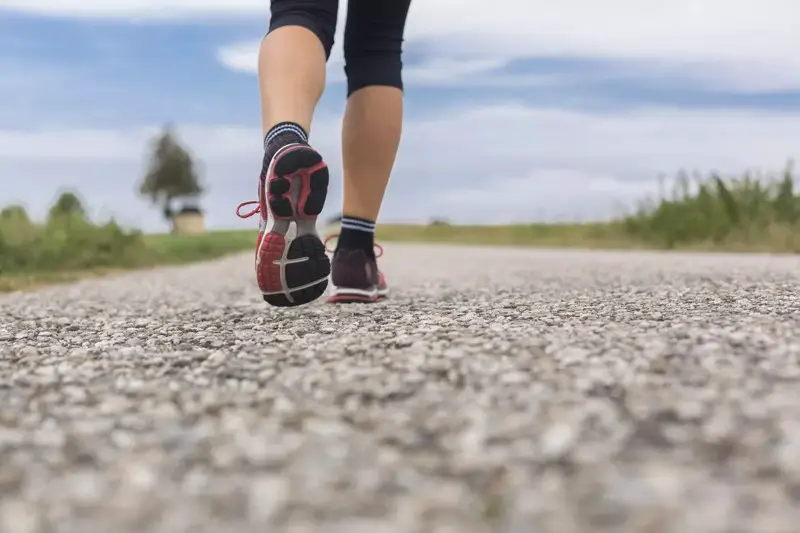
6) Diet Changes May Help Too
It’s hard to resist the temptation of fast food cravings. They taste good but they also impact the quality of your sleep in the long run. The same also goes if you regularly consume processed foods and sugary beverages such as soda. Try to reduce or if possible, avoid them altogether to reduce sleep apnea. Introduce a more healthy diet such as eating more fruits and vegetables. Other sleep apnea-reducing diets to be considered are whole-grain products, eggs, walnuts and oily fish such as sardines and salmons.

7) Learn Yoga
Yoga is synonymous with calming and relaxation. If you have yet to try this exercise, consider taking a class because yoga can improve your breathing levels and not to forget, a restful good night’s sleep. Practising yoga on a regular basis can help you to fall asleep faster and even sleep longer.
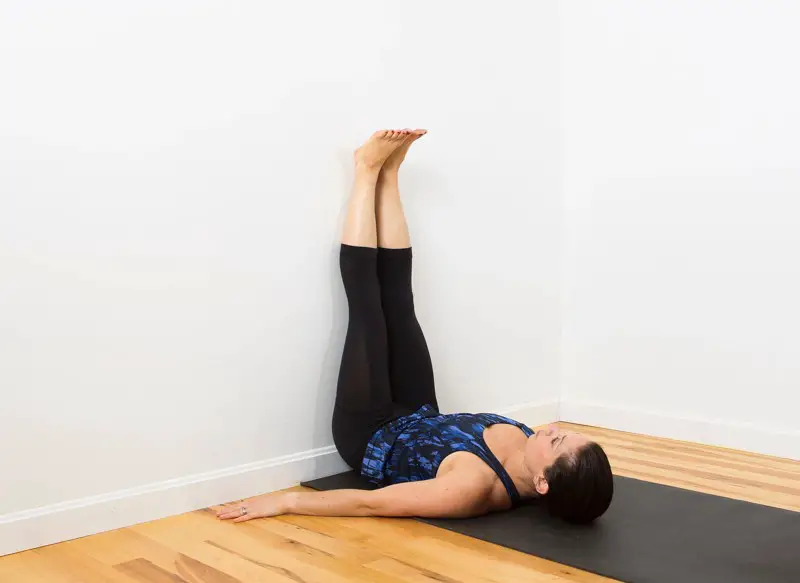
8) Try Raising The Head Of Your Bed
Still not feeling comfortable sleeping on your side? If you insist on sleeping on your back, at least what you can do here is elevate the head of your bed. You can do so by placing a bed wedge under the mattress. Or get a wedge pillow (and no, stacking a few pillows won’t work) to keep your head elevated while sleeping. By sleeping in an elevated position, the chances of gravity pulling your tissues in the throat that cause airway obstruction can be reduced.
